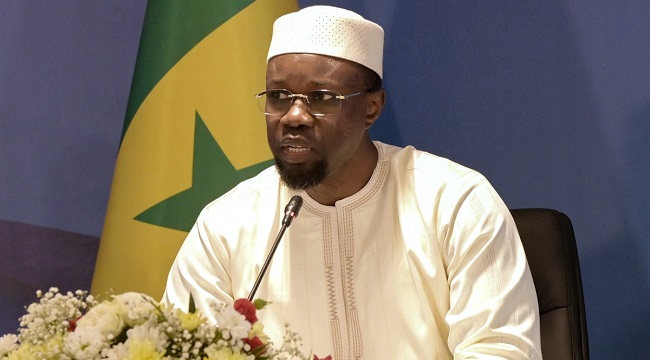Senegal’s Prime Minister, Ousmane Sonko, vowed on Thursday to launch investigations into what he described as “widespread corruption” under the previous administration, accusing it of manipulating financial data.
“The reckless borrowing policy during former President Macky Sall’s tenure has led to non-transparent resource management, fostering rampant corruption,” Sonko told reporters, condemning the “massive embezzlement of public funds.”
Sonko, along with President Bassirou Diomaye Faye, took office in March after running a campaign focused on radical reforms. Their platform emphasized social justice, sovereignty, and pan-Africanism, raising public hopes in a country grappling with high living costs and unemployment.
After Faye’s inauguration in April, he tasked Sonko with a comprehensive review of Senegal’s financial status. Sonko shared the alarming results on Thursday, revealing the extent of fiscal mismanagement.
“We were unaware of just how disastrous the situation was,” Sonko said, accusing the former government of misleading both the public and international partners by falsifying economic data.
“The Macky Sall administration deceived the people, its partners, and manipulated figures to present a false economic and financial picture,” Sonko declared. “Everyone involved will be held accountable to the Senegalese people for how they drove the country into this crisis.”
He specifically named former President Macky Sall, ex-Prime Minister Amadou Ba, and two former finance ministers as key figures in the alleged misconduct.
Justice Minister Ousmane Diagne, who also spoke at the press conference, described the actions as potentially “criminal,” stating that the judiciary would conduct investigations to determine the legal ramifications.
With snap parliamentary elections scheduled for November 17, the press conference marked the first held by the new government since taking office. In mid-September, President Faye dissolved the opposition-controlled National Assembly, calling for fresh elections to secure a mandate for his policy agenda.
In September, the International Monetary Fund (IMF) warned that Senegal’s economic outlook remained “challenging” for the rest of the year. Following an assessment by its staff, the IMF projected a worsening budgetary situation due to lower revenue collection and increased spending on energy subsidies and interest payments.
The IMF recommended that Sonko’s government implement measures to reduce public debt, including streamlining tax exemptions and phasing out untargeted energy subsidies.
Senegal’s national statistics agency reported a 21.6% unemployment rate for the second quarter of 2024, up by three percentage points compared to the same period in 2023. Amid this economic hardship, many Senegalese continue to risk their lives attempting to migrate to Europe, with dozens dying each year during the dangerous Atlantic crossing.
The government plans to unveil a national transformation agenda in early October, aimed at fostering “a lasting transformation of the Senegalese economy” and building a sovereign, equitable, and prosperous nation.
Sonko and Faye have reiterated their commitment to holding the previous administration accountable. Several former officials have already been barred from leaving the country.
During the press conference, Economy Minister Aboudrahmane Sarr revealed that the budget deficit, previously reported as averaging 5.5% of GDP between 2019 and 2023, was actually 10.4%. Public debt, announced at 65.9% of GDP, was in reality 76.3%, he added.
Sonko and Sarr outlined plans to expand the tax base, cut government waste, eliminate energy subsidies, and formalize Senegal’s largely informal economy.



